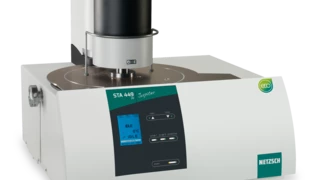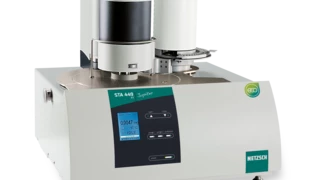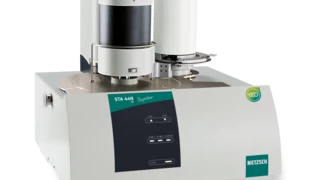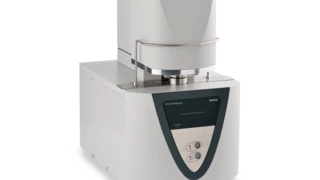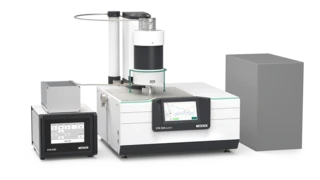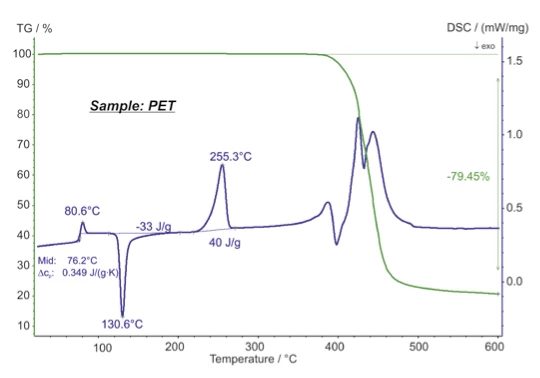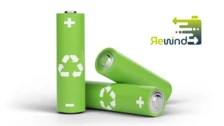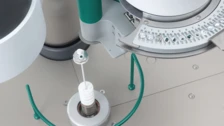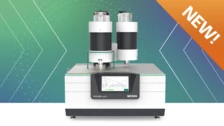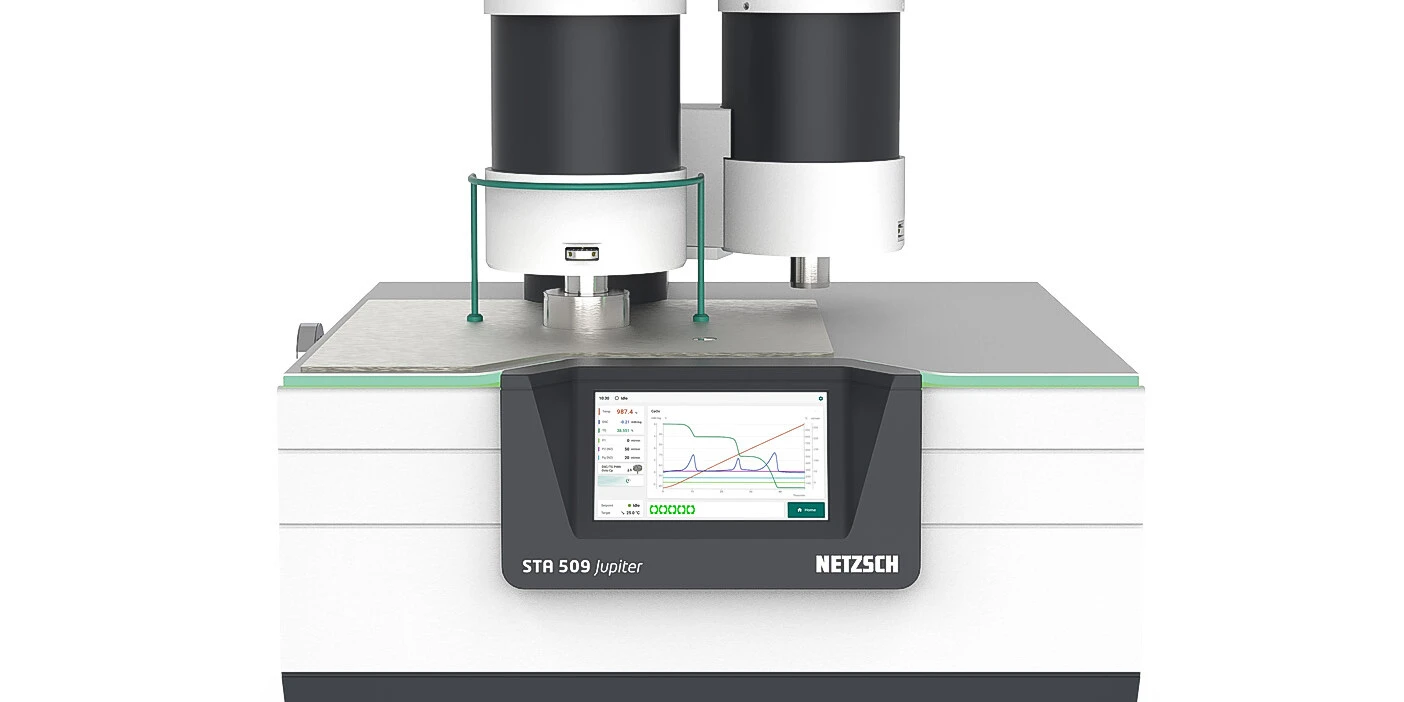
STA/TG-DSC
Simultaneous Thermogravimetry – Differential Scanning Calorimetry
L’application simultanée de l'Analyse Thermogravimétrie (ATG/TG) et de la Calorimétrie Différentielle à Balayage (DSC) à un seul échantillon dans un instrument STA apporte plus d’informations que l’application séparée dans 2 instruments différents:
- Les conditions de test sont parfaitement identiques pour les signaux TG et DSC (même atmosphère, débit de gaz, pression de vapeur sur l’échantillon, vitesse de chauffe, contact thermique entre le creuset échantillon et le capteur, phénomène de radiation, etc.).
- La capacité d’analyse des signaux est améliorée, car deux voir plusieurs ensembles d’informations concernant le comportement de l’échantillon sont toujours disponibles simultanément (différentiation entre transformation de phase et décomposition, entre réactions d’addition et de condensation, identification d’une pyrolyse, d’une oxydation, et des réactions de combustion, etc.)
Depuis les premières années de son existence, NETZSCH-Gerätebau GmbH a donné la plus haute priorité au développement et à l’optimisation continuelle de ses instruments STA. Ces derniers occupent aujourd’hui une position de leader sur le marché en raison de leur parfaite technologie.
Les normes internationales pour les techniques TG et DSC (consulter les sections respectives) sont évidemment respectées par les instruments STA NETZSCH.
The New STA 509 Jupiter® Series
The modular design of the STA allows for easy exchange of furnaces and sensors to accommodate multiple applications over a wide temperature range from -150°C to 2400°C. The top-loading design provides ideal performance and easy of use, making it the obvious choice for a flexible analytical system and evolved gas analysis. The vacuum-tight design and meticulous control of gas flows allow precise handling of high-purity atmospheres with respect to various inert, oxidizing, reducing and corrosive gases.
A wide range of accessories, including humidity and water vapor generators, expand the application possibilities. Furthermore, the integration of Evolved Gas Analysis with MS, FT-IR, or GC-MS systems significantly enhances the analytical potential of the STA 509 Jupiter® series.
- STA 509 Jupiter® Classic
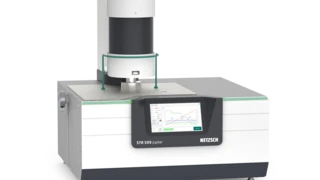
Best Price/Performance Ratio
- RT to1600°C
- SiC furnace
- Balance resolution: 0.1 μg
- Optional 20-position ASC
- STA 509 Jupiter® Select
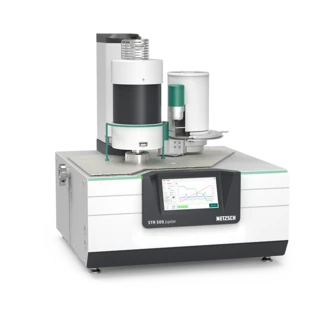
Taylored to Your Needs
- -150 to 2400°C
- Choice of 12 different furnaces
- Balance resolution: 0.1 μg
- Optional 20-position ASC or 2nd furnace
- STA 509 Jupiter® Supreme
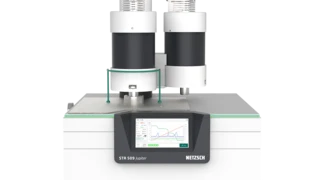
Instrument for Highest Performance
- -150°C to 2000°C
- Choice of 9 different furnaces
- Balance resolution: 0.025 μg
- Optional 20-position ASC or 2nd furnace
- H₂Secure
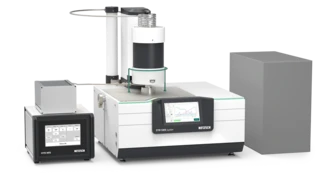
Safe Examination of Materials Under Hydrogen
- Accessory for STA 509 Jupiter® series
- Retrofittable for STA 449 Jupiter® series
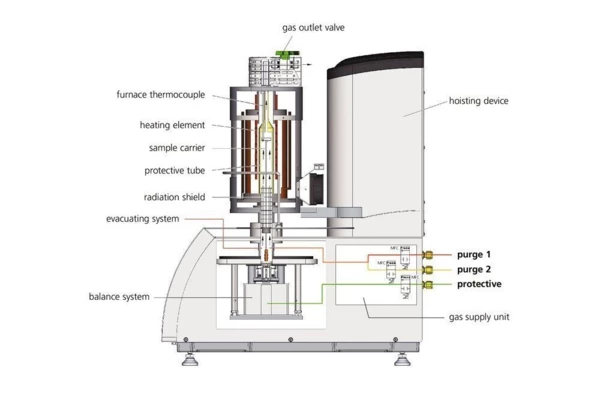
The advantages are obvious:
The test conditions are perfectly identical for the TGA and DSC signals (same atmosphere, gas flow rate, vapor pressure on the sample, heating rate, thermal contact to the sample crucible and sensor, radiation effect, etc.). Furthermore, sample throughput Is improved as more information can be gathered from each test run.
More Details about this method
Littérature d'application
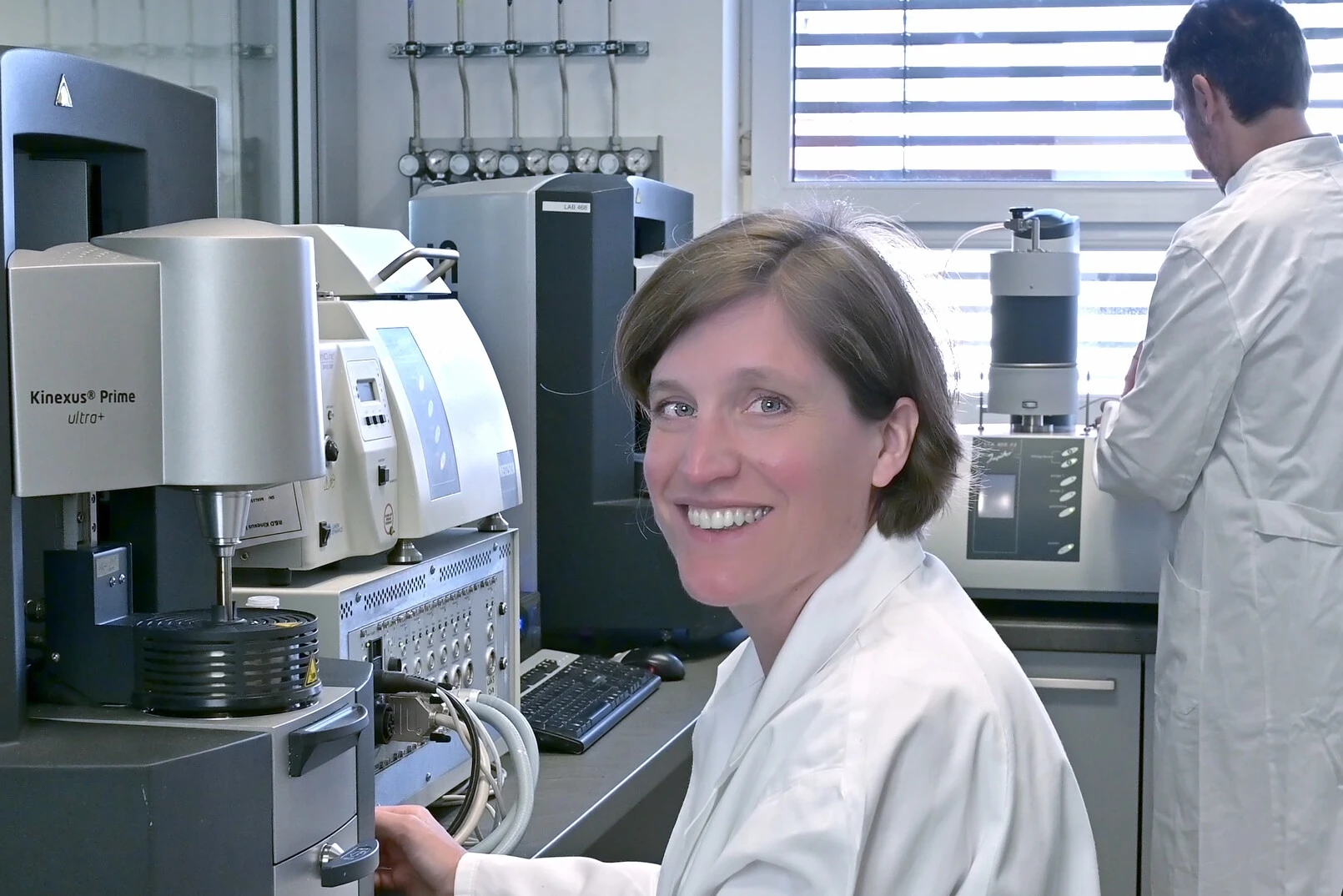
MEASUREMENT WANTED?
Our NETZSCH applications laboratory is providing contract testing services for a wide range of industries and research centers. It is equipped with state-of-the-art testing instruments allowing for a variety of thermal analysis measurements to be carried out.
Consult with the experts in our applications labs to choose the best-suited measuring method for your specific needs.
